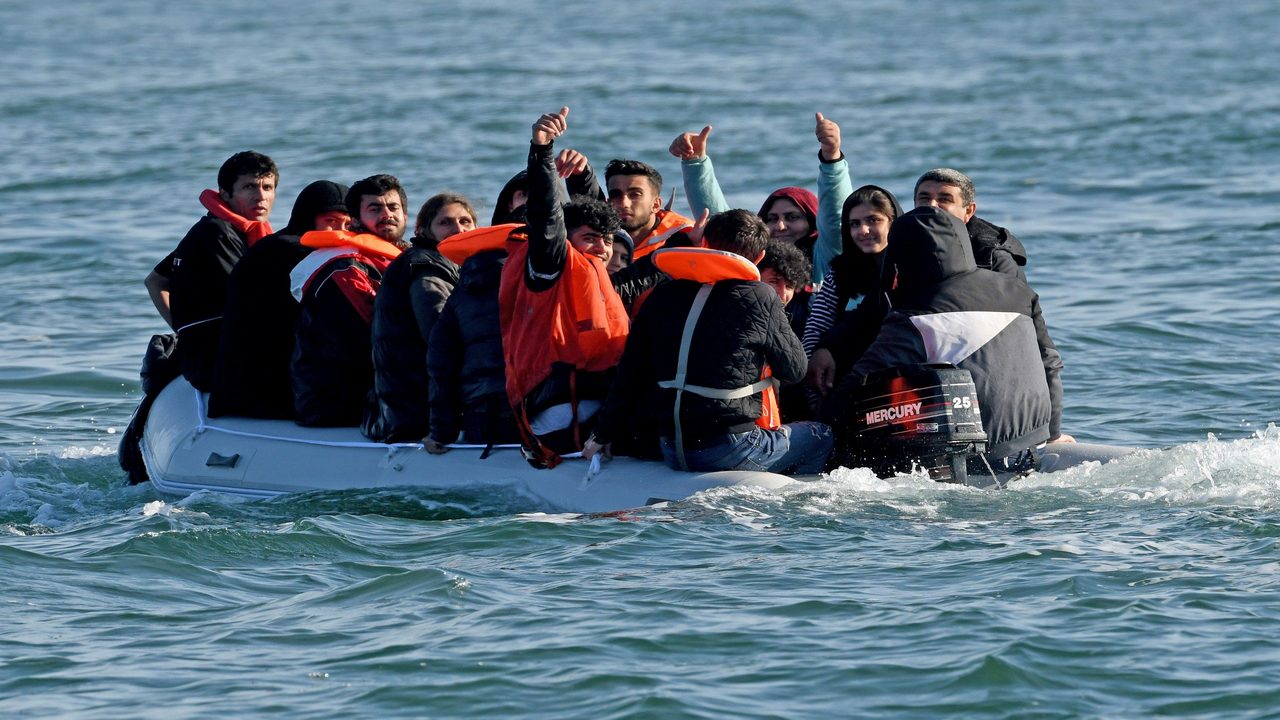
Last November, my best friend and I drove from Albufeira to Seville to spend the day in what is widely considered to be the most beautiful city in Spain. The two are directly connected by a cross-border motorway, which means not having to stop to consult a map on frequent occasions. The distance between the two is equivalent to driving on the M1 between Sheffield and London – some 170 miles. That’s where the similarity ends. Whereas on the M1 you’re constantly surrounded by a stream of heavy traffic, roadworks, congestion and several cities of considerable size along the way; in Andalusia we had the pleasure of miles of open countryside and a road where space between vehicles was optimum rather than minimum. It makes driving a much more enjoyable experience.
Why do I recall this journey in an article about illegal immigration? Because it is a prime example of how densely populated the United Kingdom already actually is. We take it in our stride in our everyday lives. It is only when we compare it with travelling in much of continental Europe (let alone countries like the United States and Canada) that we realise just how crowded we are on this small island. Of the world’s seven most advanced industrial nations, only Japan has a greater number of people per square mile. Setting aside Europe’s microstates (San Marino, Monaco, etc.), the United Kingdom is beaten only by Belgium and the Netherlands. The aforementioned Spain, at two-and-a-half times the geographical size of the UK, has 20 million fewer people! Thus, when the usual uber-liberal suspects emerge into the light to chastise us for not taking as many refugees/illegal invaders/economic migrants (delete as appropriate) as many others in Europe, we should respond by informing them that they – unlike us – have the adequate room to do so.
Britain has been a crowded country for all of my lifetime. I don’t dispute that. However, the sheer scale of population growth these last 25 years has been staggering and unprecedented. When I went to school in the 1980s, the UK had 55 million people. It now has close on 68 million. A majority of that growth has been through immigration, with all the attendant frustrations and pressures being put on housing, public services and infrastructure in the meantime. When we voted for Brexit in 2016, we wanted in large part a control of our sovereign frontiers once again. We did not return the decision on legal migration to our elected politicians only to see our borders being adulterated – this time by an endless stream of ILLEGAL humanity crossing the English Channel to the Kent coast. Since 2018 the jump has been alarming: 299 in 2018; 1,843 in 2019; 8,466 in 2020; and 28,526 last year. By some estimates the projected figure for 2022 is twice that of 2021. It’s simply not sustainable. It not only puts a strain on local communities in terms of accommodation, but there are also numerous anecdotal examples of migrants being housed in hotels and causing unrest – both amongst themselves and in clashes with disgruntled locals.
None of that matters to the London-centric, metropolitan, Guardianista set. They are happy to preside over hundreds of thousands of migrants entering our country every year – legal or illegal – until the end of time if possible. These disciples of open borders broadly sit in two separate ideological camps. The first is one of cognitive dissonance – a belief that you can have extraordinary levels of inward migration to the UK whilst still being able to observe environmental, social and economic targets and a reasonable quality of life into the bargain. The second camp is more mendacious. These folk simply detest the concept of the nation state. Their quest is an open world with open borders and national identity firmly smothered by a thick blanket of ultra-diversity. Having had their worldview shattered by Brexit, they aim to take revenge by positing Britain as a bottomless receptacle for anyone and everyone who wants to come here by whatever means they can. If that involves using a small boat and coming to the UK from an already safe country with comparable levels of prosperity and human rights to our own, so be it. For those in this camp – the Simon Jenkins’s, James O’Briens, Jonathan Freedlands and Ash Sarkars of this world – this is about undermining a fundamental plank of the Brexit argument. Other considerations – such as the potential criminal backgrounds of these illegals, or the rights of people who have been born in the UK and paid taxes here all their lives – are very much of secondary importance.
This is why they are the folk who screamed the loudest when Priti Patel brought forward the idea of processing illegal migrants in Rwanda. To listen to their hysterical blethering you’d think the Home Secretary had undertaken a City and Guilds course in genocide studies and was using central Africa for the practical! Rwanda is not the country it was when ravaged by internecine warfare of the early and mid-1990s. It is relatively stable, prosperous compared to many of its immediate neighbours, and has a higher human rights ranking than states such as the Seychelles and Mauritius – destinations thousands of Britons are happy to travel to for their summer holidays each year. It is also one of only two countries never part of the British Empire which has acceded to the Commonwealth. Rwanda’s experience of civil war has also enabled it to send peacekeeping forces to Mozambique to quell radical Islamic insurgents. Of course it doesn’t pretend to have the allure of the United Kingdom. If it did, it wouldn’t be a deterrent.
Offshore processing worked in stopping illegal immigration to Australia. Canberra went ahead with this plan back in the early noughties notwithstanding the pearl-clutching from much of the international community. For it understood that the most basic responsibility of any sovereign government is not to offer its country up as a bed and breakfast to all who wish to avail of it, but to ensure its own citizenry is protected from potential harm. The government in the UK has only belatedly accepted such a premise, though it should be congratulated for doing so. If, as the linked article suggests, illegals are happy to remain in France rather than being transported to Africa, then the policy is starting to succeed before it’s even been properly implemented! Furthermore, the difficulty for the political ‘blob’ in Britain is that if the policy works conclusively, then the public will blame the House of Lords or the Labour Party should they try and block its statutory enactment. If Labour subsequently comes to power (God forbid!!), it would mean revocation of the policy risks starting up the crossings once again.
Should this plan work, it will ensure myself and millions of other voters will forgive Boris (and the rest of the political class) for his COVID stewardship come the next General Election. For we know the resultant cost of living crisis cannot be affected by a Starmer administration. Immigration, on the other hand, very much can be. That’s the difference!
Views: 0




































